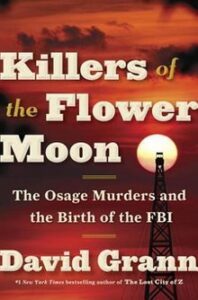Question: Who Are the People That Had the Greatest Positive Impact on You?

In a video interview recently, I was asked to name the people that had “the greatest positive impact” on my life. The general topic of the interview was “business building.” So I first thought about the businesspeople I had worked for and/or with – savvy CEOs, executives, and entrepreneurs that had revealed important secrets to me or trained me in certain valuable skills.
I came up with three or four. (Which I’ll mention in a minute.) But upon reflection, I realized that the answer to that question had to go beyond my career. There were about a dozen people that had a major effect on the way I approached everything I did in every aspect of my life.
And by the way, I think this is true of everyone. Including you! So I urge you to spend some time making a list of the people that had the greatest positive impact on your life. I think you’ll find it interesting. Even eye-opening. At the very least, it will remind you of some stories you can tell your grandchildren when you’re my age. (And if your list is like mine, you may be surprised to find that a fair number of the people on your list did what they did by criticizing you.)
My List
- My parents. Number one. As is true of most people, they, of course, were the most influential people in my life. And I’m very lucky in that they were mostly positive and inspiring. I am still amazed when I think about how they managed to accomplish what they did in life while raising eight children. It amazes me more every time I think about it.
My mother valued art and poetry and dance and the theater. She valued honesty and frankness, hated hypocrisy, and didn’t suffer fools. She cared for and was kind to people in our neighborhood that were incapacitated.
The bulk of my father’s influence on my life came on later, after I left home. He was a literary scholar who read four or five languages and could quote Homer in Greek. He was also a dramatist, an English literature professor, and a secret math genius. He was not at all interested in sports, which irked me when I was young enough to want to play them. And he was amazingly absent-minded, which is something that has passed on to me in the last several years.
- My fourth-grade teacher – whose name I forget, but who suggested to me that I could become a writer and challenged me to write an historical account of the Iroquois Indians, who, if I remember correctly, were native to Long Island, where we lived at the time.
- My ninth-grade homeroom teacher, Ms. Growe – who, after making me stand up in class, said to my fellow students, “If you want to know the definition of ‘underachiever,’ Mr. Ford is a living example.” (Oddly, I don’t remember this bothering me. I was sort of proud of it. Probably because I knew it was true.)
- Coach Dick Caproni, my high school football coach – who apparently admired the way I could run, at full-speed and head-first into just about anything he asked me to. I loved that guy. Although I’m sure I lost a few IQ points heeding his commands.
- Lillian Feder, a classicist at Queens College – with whom I took two undergraduate courses in Greek and Latin culture. She taught me the importance of grammar and punctuation, and once allowed me to take a test over again (which she should not have) because she believed in me.
- Harriet Zinnes, another teacher at Queens College – who taught me how to read poetry, pushed me to study Ezra Pound in depth, and made it clear to me how common it is for people that haven’t earned the right to call themselves writers, nevertheless do.
- Peter Mustapha Lopa, my French teacher and later student and friend during my two-year sojourn in Chad, Africa – who taught me how possible it is to bridge, in friendship, insurmountable distances.
- Leo Welt, a WWII war orphan and the founder of Welt Publishing – who hired me for the first legitimate writing job I ever had. Leo was not especially charming. In fact, he was often rude. But when it came to accomplishing any notion that came to his mind, he was a force of nature. Nothing could stop him. Leo taught me the amazing power of brute persistence.
- Joel Nadel, a Florida-based newsletter publisher – who gave me my second writing job. And taught me how money is made and wealth is created. And gave me the chance to become wealthy myself. Joel didn’t treat everyone the same, but he treated me like family.
- Bill Bonner, a Baltimore-based newsletter publisher – who gave me my third writing job. Bill was, in almost every respect I can think of, the opposite of Joel. And because of that, he was able to teach me that there is always more than one way to skin a cat. In other words, that every truth in life has an equal and opposite truth – i.e., don’t let someone else’s truth get in your way.


